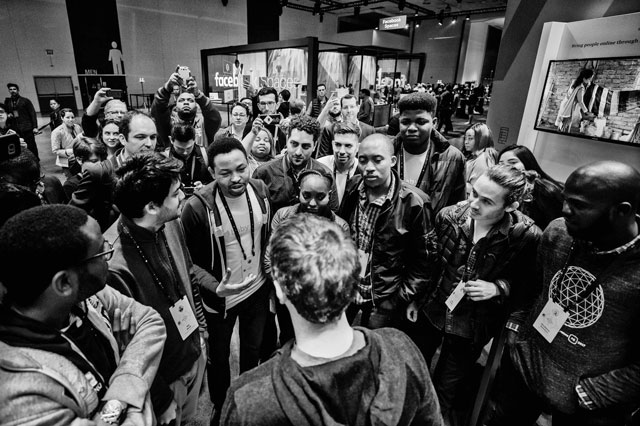
Africa must invest heavily in youth, if we are to lead in innovation
COMMENT | By Awel Uwihanganye | In an increasingly mobile global economy, it is important that African thought leaders consider the subject of innovations in the context of the millions of jobs that can be created, and the larger impact on human life.
The factors that inhibit Africa’s emergence as the next hub for disruptive innovations are the same factors that position Africa as most ideal for the innovations to happen – population and demographics.
Of the world’s 7.3 billion people, 1.2 billion are Africans, representing second largest in population after China. By 2050 the population will have grown to 2.2 billion people. Of these, two thirds are considered youth under the age of 25 years.
With this snapshot how then do we see Africa emerge to lead in the age of innovation? Africa must first and foremost acknowledge population and demography as its competitive advantages. The median age in North America is 37 to 40 years, while in Europe it is 37 years and projected to be 52 years in 2050; on the contrary, Africa’s median age is 19 years. To compete, Africa must consider unleashing this human power onto the world by investing in skills, creating conducive environments for innovation, and most importantly, shaping the software for this innovation- our mindsets. What Africa requires is an empowered youth population that is clear on its self identity, self worth, and with an inspired commitment to create and change.This is the power that can potentially put Africa at the centre of the global innovations space.
Additionally, Africa has the fastest growing rates of both mobile telephony and data penetration, with a projected 700 million users of smart phones by 2050. Mobile technology, and data usage have been central to the disruptive innovations’ wave across the world.
The Western Economy, Capitalism, and the Age of Innovation
Innovation from a western experience is leading to more automated systems, replacing human effort in production and delivery of services. The drive for innovative solutions for Africa cannot afford to adopt this approach, for a region with 50% of global poverty. Africa must find a balance in its adoption of technological innovation where the benefits of efficient and fast communicationsare balanced against building efficient economies where labour is utilised.
One can argue that the age ofdisruptive innovations is another way for capitalism to keep a stranglehold on world economies, and keep maximum profits flowing in the pockets of the already rich. The phrase (disruptive innovations) is reflective of similar catch phrases often shaped by capitalist drivers of economic thought to direct consumer trends and economic outlook. Using the power of media such phrases translate into a narrative which the rest of us conform to, and even when the narratives are shaped for audiences in western economies, the rest of the world catches on, Africa included.
Disruption like many other trending fads such as the“Africa rising” narrative are products from the Silicon Valley mind labs, made more popular with the entrepreneurship start-up culture inherent in the capitalist Silicon Valley mind labs model.
Thanks to their efforts, innovation in the tech-world has radically changed the way most access services and are increasingly putting traditional businesses out of the game. Modern business thinking demands an adaptation to technology,businesses either innovate or die.
Take an example of Netflix,a company that was formed in 1997 that radically changed access to video and movie content business. Through its innovative business model of media streaming and video-on-demand, Netflix put thousands of videos and media content within button reach from the latest entertainment to classic documentaries, at an affordable cost. Previously, the business of movie rental services was dominated by Blockbuster, which however filed for bankruptcy in 2010 after a rapid decline in its revenue since the early 2000s after Netflix entered the market. It is nothing like what Blockbuster imagined would happen within such a short space of time, and now along with Blockbuster, several other cable companies have either closed or are struggling to cope.
Uber with its simplified model of accessing cab or taxi services at much reduced fares, and with ability to track and rate services offered, is leaving traditional cab drivers and taxi companies globally in disarray, but customers are responding favorably. Uber makes the passengers life so simplified from ordering a taxi, to payment, and receipt.
The same goes for services offered by Spotify the audio and music sharing platform, and Airbnb giving traditional hotel accommodation service around the world nightmares.
 The Independent Uganda: You get the Truth we Pay the Price
The Independent Uganda: You get the Truth we Pay the Price



